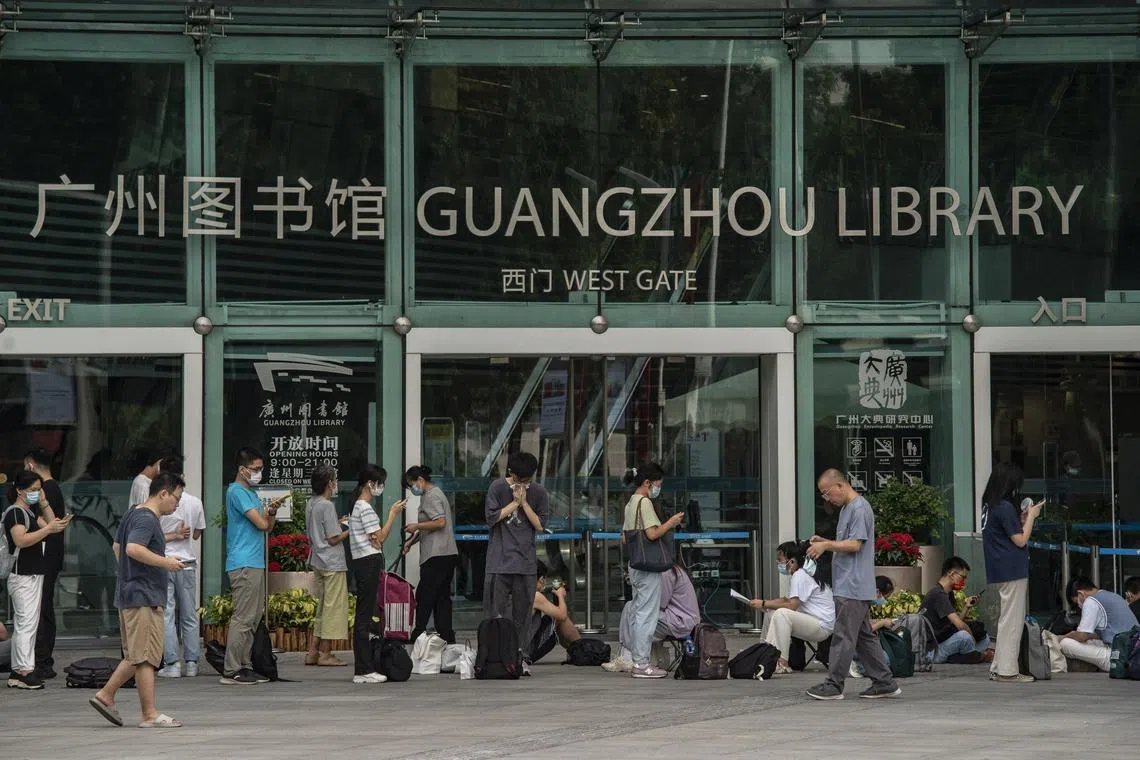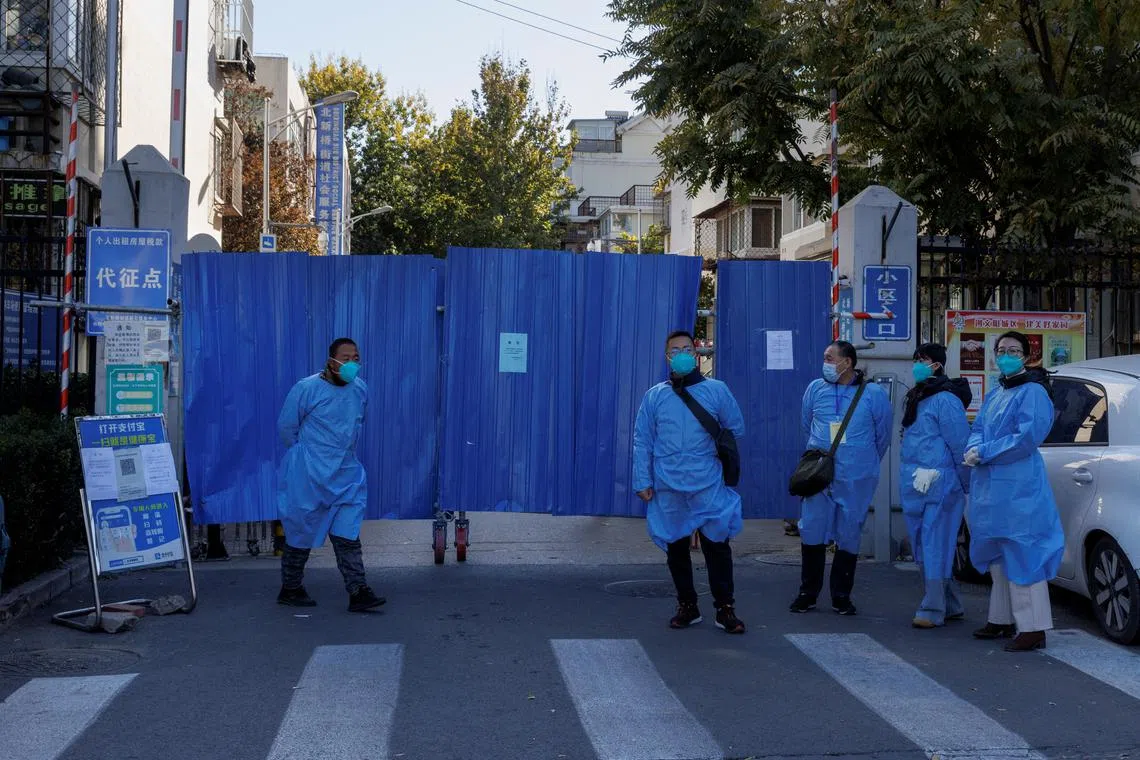China’s Guangzhou city brings back mass testing to fight worst Covid-19 outbreak
Sign up now: Get insights on Asia's fast-moving developments

The latest round of mass testing in Guangzhou comes as China battles a rebound in infections in several economically vital cities, including the capital Beijing.
PHOTO: BLOOMBERG
BEIJING - Millions of residents of China’s southern manufacturing hub of Guangzhou were told on Wednesday to get tested for Covid-19, as infections topped 2,000 for two consecutive days in the city’s worst outbreak
As local cases across China reached their highest level since April 30, the authorities announced on social media that five districts representing more than half of Guangzhou’s population of almost 19 million would need to undergo mass testing.
The latest round of mass testing in Guangzhou comes as China battles a rebound in infections in several economically vital cities, including the capital Beijing and Zhengzhou in central China and south-western Chongqing, which have dampened hopes that the world’s second-largest economy could ease restrictions soon.
The authorities are determined to get on top of the outbreaks and make good on President Xi Jinping’s zero-Covid-19 policy,
The districts in Guangzhou subject to mass testing this week include Haizhu, which has seen the bulk of the city’s cases. A district-wide lockdown from last Saturday to Monday has been extended to Friday as cases rise.
“My residential compound in Tianhe (district) has been locked up since yesterday,” said Guangzhou resident Jason Li. “I was suddenly notified by my compound. Residents were instructed not to leave our building.”
He said he had not been told how long his compound would be locked up. “Thank god I’ve stocked up on groceries recently.”
Some residents told Bloomberg News they had tried to order items such as toilet paper, medicine and instant noodles in bulk, but were impeded by disruptions to courier services from the lockdowns.
Those in the districts where stay-at-home orders were imposed were still able to go out for groceries and essentials.
Ms Lily Li, a Guangzhou resident, said the outbreak in the city had worsened in the past two days, having spread to Tianhe, just north of Haizhu. “It’s a huge surprise that Tianhe hadn’t been affected sooner,” she said.
Guangzhou reported 2,637 new locally transmitted Covid-19 cases for Tuesday, up from 2,377 a day earlier, amid the city’s most serious outbreak to date and accounting for nearly a third of the 8,176 new local infections reported in China that day.
In Beijing, new Covid-19 cases jumped to the highest level in more than five months,
The capital reported 78 new infections on Wednesday, the most since May 22. The city has reported double-digit daily cases for most of the past month,
China, which automatically quarantines anyone with a confirmed case and their close contacts, monitors community transmission as a key indicator of whether an outbreak is under control.

More than 10 buildings and neighbourhoods in Beijing’s central Chaoyang district were locked down.
PHOTO: REUTERS
More than 10 buildings and neighbourhoods in Beijing’s central Chaoyang district, where most of the cases have been found, were locked down.
Residents are not allowed to leave their homes or housing complexes unless they are getting a Covid-19 test, and more than 4,400 Communist Party cadres have been dispatched to help with the needs of those under lockdown, said a district official.
Testing frequency has been increased to once a day, for up to five days this week for several districts including Chaoyang, Haidian and Changping.
With the outbreak concentrated in Chaoyang, some residents there reported being sent to quarantine centres after receiving abnormal test results that could indicate Covid-19 infections.
But some schools, daycare centres and kindergartens that closed earlier in the week were able to reopen after infection risks had been eliminated.
While Covid-19 cases in China are small by global standards, the policy response has been relentless and mass testing for large populations has been the norm since 2020.
Mass testing is generally free, but some local governments are resuming charges for tests as their finances come under strain amid a slowing economy.
Meanwhile, Apple supplier Foxconn said it would continue to maintain closed-loop operations – a system where staff live on-site and isolated from the wider world – at its iPhone factory in Zhengzhou in central China, even as the economic zone that housed the factory lifted a seven-day lockdown.
Foxconn has declined to disclose the number of infections or comment on the conditions of those infected.
The issues at the factory have hit iPhone production, prompting Apple on Monday to say that it expects lower shipments of premium iPhone 14 models.


